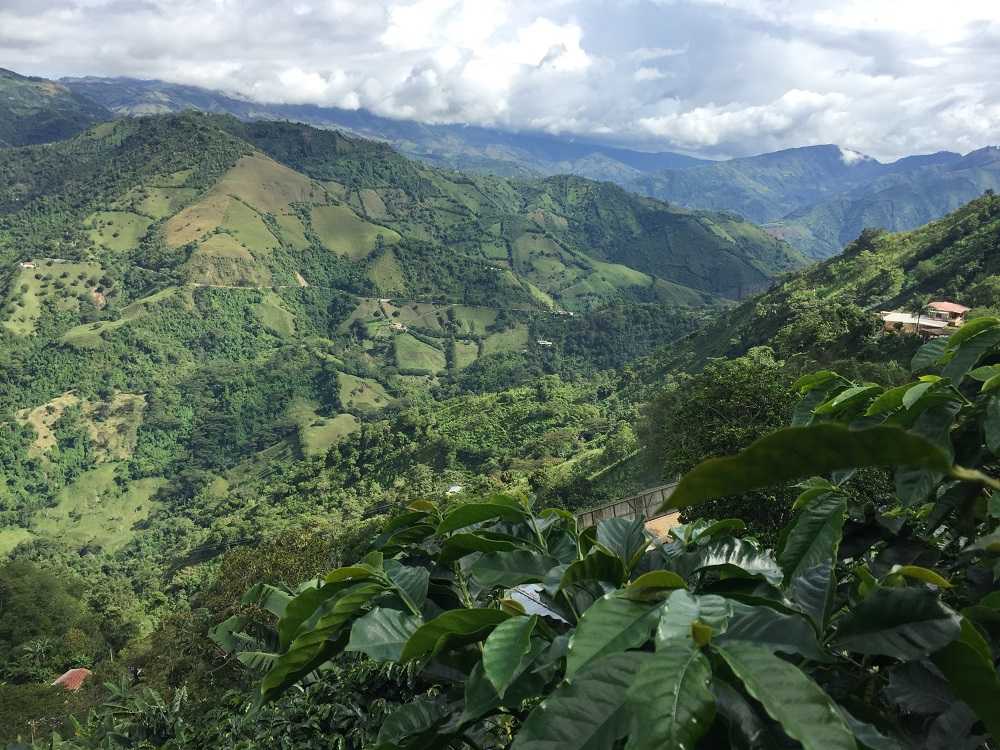WALLINGFORD, UK – CABI scientists are working in partnership to help Colombia’s coffee farmers fight the devastating coffee berry borer (CBB) (Hypothenemus hampei) pest with an early warning system that harnesses climatic data and state-of-the-art remote sensing technology.
Dr Steven Edgington is leading the team at CABI, in collaboration with Cafexport, Colombia, Climate Edge, UK, and Assimila, UK, which is helping to devise the system that will ultimately help farmers know when to apply sustainable biological controls to help manage the CBB pest .
As part of the Agri-Tech Catalyst Challenge Project, which is being funded by the Prosperity Fund Colombia and administered by Innovate UK, Dr Edgington and his colleagues are working to profile biopesticides (based on native fungi), information which will be relayed into the alert system to offer an alternative to a chemical pesticide application.
The project will also focus on overcoming gender disparities in coffee farming, where women farmers play a key role in Colombia’s coffee production but do not always have equitable access to information concerning effective integrated pest management (IPM) plans to protect crops from pests and disease.
Dr Edgington said, “The coffee berry borer is the most serious coffee pest, worldwide, causing crop damage in excess of $US500 million, annually. In Colombia, 75% of coffee crops are affected by this pest, where it directly damages coffee beans, destroying the taste and making the beans unsaleable.
“To exacerbate the problem, climate change is enabling the wider spread of CBB, especially to higher altitudes. So, to overcome losses, the trend amongst farmers is to intensify their activities and expand growing areas.
“CABI and partners are producing an alert system that uses climatic data and remote sensing technology to give farmers advance warnings of CBB surges, allowing them time to access and apply controls effectively. Biopesticides will be profiled by CABI and relayed into the alert system to further advance the farmers’ abilities to apply the control at the right time.”
Dr Edgington added that the CBB was previously confined to coffee grown below 1500m altitude but has now spread upwards as climate change creates warmer and wetter conditions which are perfect for the CBB.
The trend amongst farmers is to intensify their activities to escape the pest, clearing natural borders to make fields bigger, or moving upwards and clearing native forests to create new fields. But this is not working, the intensification is damaging the environment and causing deforestation.
“There is also an increase in the frequency of chemical pesticide sprays used by farmers, meaning that on the farms, families and children are exposed to more poisons,” Dr Edgington said. “Furthermore, women farmers, in particular, lack access to information and on-farm decision-making control to tackle the CBB, improve farm safety and adapt to climate change impacts.”
Biopesticides for CBB exist but farmers are often reluctant to use them as they are seen to be ineffective and slow to act. But the problem is often that they are applied at the wrong time.
Data, such as temperature, relative humidity, CBB numbers and berry maturity, from coffee fields, using remote sensing technologies and in-person analysis, with the help of farmers, will be used (alongside work in CABI’s labs) to predict when CBB migration will occur and, the best conditions for the CBB biopesticide to survive, infect and be effective.


















